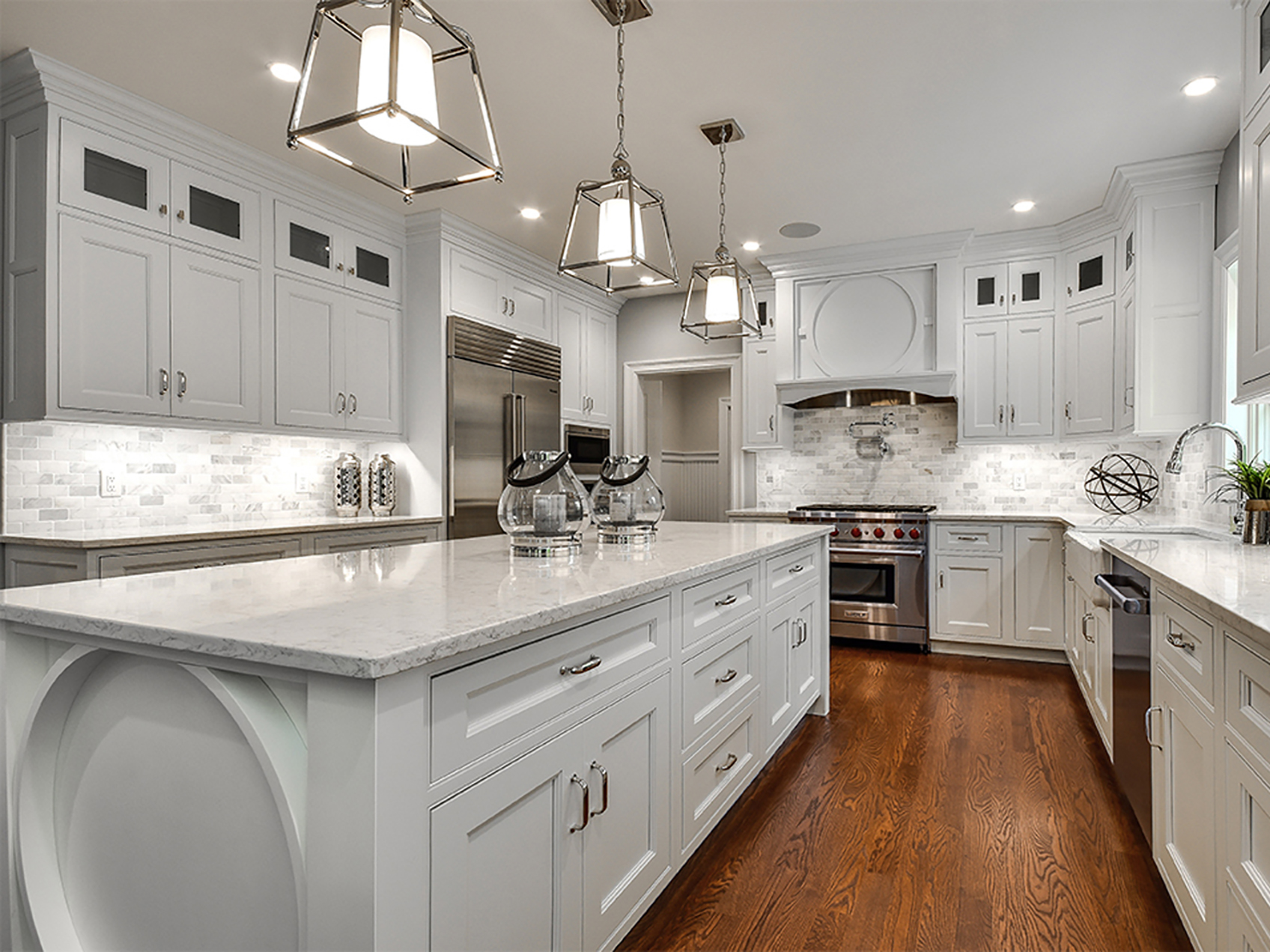Choosing the perfect countertop for your kitchen involves considering how the material will affect the aesthetics, functionality, and longevity of your space. Natural stones are renowned for their durability and timeless beauty, but with so many options, finding the right one can be challenging. We’ll examine some of the most popular natural stone options for kitchen countertops, evaluating their pros and cons to guide you in making an informed decision.
Granite
Granite is one of the hardest natural stones, making it highly resistant to scratches and heat. Its durability is one of the primary reasons for its popularity. Additionally, granite is available in a wide range of colors and patterns, with each slab being unique, adding a distinct character to your kitchen. The value it adds to your home is significant, as it remains a popular choice for its timeless appeal. However, granite requires periodic sealing to maintain its resistance to stains and bacteria, which can be seen as a drawback for those seeking low-maintenance options. The cost of granite can also be high, especially for rarer and higher-quality slabs.
Quartzite
Even harder than granite, quartzite is incredibly durable and scratch-resistant, making it an excellent choice for busy kitchens. Its aesthetic appeal is another strong point, as it mimics the look of marble with stunning veining and patterns but without the associated maintenance concerns. Quartzite is also highly heat-resistant, an essential feature for kitchen use. Similar to granite, quartzite needs to be sealed periodically to maintain its appearance and durability. The cost can be a deterrent for some, as it is generally more expensive due to its superior qualities.
Marble
Marble boasts a classic, luxurious appearance with unique veining patterns that turn each piece into a work of art. Its naturally cool surface is especially valued by those who enjoy baking and pastry preparation. However, marble is a porous stone, making it susceptible to staining and etching from acidic substances, which necessitates diligent maintenance. It is also softer than granite and quartzite, making it more prone to scratches and chips. These factors can make marble a less practical choice for high-traffic kitchens, despite its undeniable elegance.
Soapstone
Soapstone is naturally non-porous, which makes it highly resistant to stains and bacteria, a significant advantage for kitchen environments. Its low maintenance requirements are another benefit, as it does not require sealing and can be easily maintained with mineral oil. Soapstone is also highly heat-resistant, making it a practical choice for kitchen countertops. However, it is softer than other natural stones, which can lead to scratches and dents over time. Additionally, soapstone is typically available in shades of gray and green, which may not suit all design preferences.
Quartz
Quartz, an engineered stone, combines the best of natural stone with modern manufacturing techniques. It is highly durable and resistant to scratches, stains, and heat, making it an excellent choice for busy kitchens. Its non-porous nature means it does not require sealing and is easy to maintain. Quartz is available in a wide range of colors and patterns, often designed to mimic the look of natural stones like marble and granite. However, quartz can be costly, especially for high-end designs. Although it is heat-resistant, it doesn’t tolerate heat as well as natural stones and can get damaged by direct exposure to high temperatures.
Porcelain
Porcelain is extremely hard and resistant to scratches, stains, and heat, making it a highly durable option for kitchen countertops. Its non-porous nature means it is easy to clean and requires no sealing, making it a low-maintenance choice. Porcelain is also versatile, available in various colors and can mimic the look of natural stones, wood, and other materials. However, porcelain can be expensive, especially for high-quality or custom designs, and it requires professional installation due to its hardness and potential for chipping during cutting.
Conclusion
Selecting the best stone for your kitchen countertops ultimately depends on your personal preferences, lifestyle, and budget. Granite and quartzite offer exceptional durability and a wide range of aesthetics, making them popular choices for busy kitchens. Marble provides unmatched elegance but requires more maintenance. Soapstone offers a unique look and easy maintenance, while quartz and porcelain combine durability with low maintenance and design versatility. When making your decision, consider the daily use and maintenance requirements of each material, as well as how each stone will complement your kitchen’s overall design. With choosing what is the best stone for kitchen countertops, your kitchen countertops can become a beautiful and functional centerpiece in your home for years to come.

